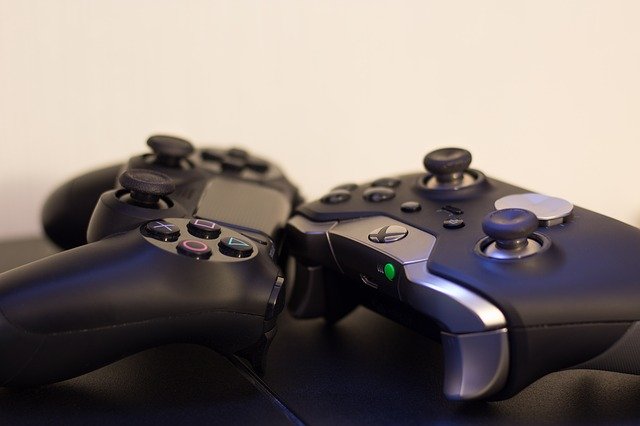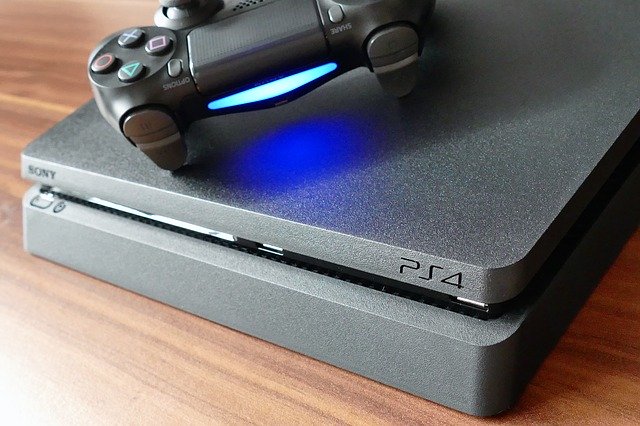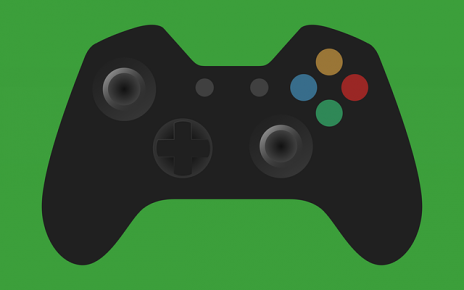Addiction is often associated with things like illegal drug use or alcohol, but you don’t often hear the term paired with simple hobbies like video games. Thirty years ago the game industry was still waiting to break into households and nobody had any idea who the happy, mushroom-hungry Mario and Luigi were. Today three major companies battle each other every holiday season to see who can earn the most millions and appeal to the people eager to mash the buttons on the plastic devices and stare through the kaleidoscopic orb of wonder. When described like that, the idea of addiction seems almost as expected as a user of heroin. It may not be nearly as physically dangerous, but the reality is video game addiction can and does occur, and I have my own personal account to attest to it.
I was born in 1988, and my dad already had a ColecoVison and an Atari in the basement, as well as a Nintendo Entertainment System (NES) in the living room. When I was old enough to speak and understand the concept of video games I used to watch him play them, and he even showed me how they worked. I loved playing Super Mario Bros. 3 with him, and if he was busy with adult responsibility, I enjoyed Kirby’s Adventure and Super Mario Bros. 2. Eventually we got a Super Nintendo Entertainment System (SNES) and played Super Mario World, Donkey Kong Country, among others, and I spent a lot of time with other games I received as gifts or rented from local stores. It was the same concept as all of the kids today toting Nintendo 3DSs; they’re just kids being amused by interactive cartoons who will grow into other interests with age.
The Christmas I got a Nintendo 64 solidified my hobby as a gamer. The console was released in 1996 and saw many huge titles up through 2000, so as an eight year old I was excited every step of the way. Every kid knew about and was equally amazed by Super Mario 64 and Goldeneye 007. My dad and I still occasionally played games together, too, so there was that added father-son enjoyment. Still, most people between 8 and 12 start having to manage their time more, and if there’s going to be father-son bonding, it’s usually more like through playing baseball in the yard or helping him with projects. High school was looming around the corner, so even if none of that growing up was reasonable yet for my age, it was about to be.
Even in class, my mind would hover around pokemon series where I would need to have a Pokemon go accounts for sale and collect all the characters and homework was nothing more than a worthless task that I had been thrust upon that I tried best to get out of.
My class hit puberty around the same time the Nintendo Gamecube came out, next to the Sony Playstation 2 and Microsoft Xbox who officially started the console war and dubbed video games as a worldwide phenomenon to follow like movies. Back in my tiny town, we were graduating and shipping out to high school, but I was a late-bloomer, short and scrawny in those big halls. My parents got divorced at that same time, making it a triple transition: puberty, high school, and no more family. Needless to say, I escaped where I felt outcast through the only thing I was sure would bring some kind of comfort – my Nintendo. This should’ve been a red flag, but my household became a ghost town with a dog, each of us hiding in our own rooms pinched for conversation, and video games were now acceptable especially as a boy’s hobby, and even more so a nerd’s hobby, like comic books.
The result by the end of my high school career through a combination of personal issues and escapism through video games was a short, angry dork walking in the back of the graduation line still scrawny from never lifting weights, who never had been involved in sports past sixth grade, never had a girlfriend or attended prom, and was out of touch with old friends who went out to football games and parties while he sat and played Nintendo. Moreover, under pressure to pick a college major and remain on par with my classmates all happily set for a typical 4-year university, I blindly searched for a school with “video game design” in the major name, figuring that was all I was good for. I wound up moving to DeVry University for game programming nine-hundred miles south of my hometown.
DeVry was a nerd’s sanctuary with no campus housing and no more than twenty students in the only building, which was smaller than my high school. I lived in an apartment with fellow game nerds who had no money or car, and in a few months I was stripped of all my money, had my car broken into, and had seen enough pictures of real college parties from my old friends on the growing Facebook to drop out and debate suicide. Half of the time my mind was fixed on ending my life, and the other half it was rationally trying to tackle each problem one at a time. First, I needed a girlfriend. So, like a desperate fool I spilled my troubles to the last crush I had in high school, thinking that would somehow work. It didn’t, but I learned about her college from conversation and wound up transferring there, not for her but for maybe some kind of second chance. I majored in psychology, too, for no other reason than to figure myself out and forget any of the past ever happened.
I had two roommates at the new school. One was a total computer geek majoring in computer science, and the other was a regular guy with interests similar to mine outside of games. I hung around the second guy and focused more on my average-guy side that I always had and looked at the computer roommate as a benchmark of my past, like who I used to be but would no longer be associated with. No offense to him and his lifestyle, but I now had a personal disgust for sitting in front of the TV all day, the same as the personal disgust for myself that drove me back and forth on suicidal thoughts. Soon after from quitting games cold turkey out of a burning self-hate and hanging around people in normal society, I was attending parties all the time and even got a girlfriend.
Ultimately I was living my college years like I should’ve lived my high school years, always fighting the clock to make up for all of my lost time – lost time due to years poorly invested in video games. Despite having finally broken away from my gaming habit and becoming more social on campus, my personal issues and regrets always lingered, and at home on school breaks I was always alone, causing me to invest time in Facebook for social relief instead of Nintendo, and also driving me to more suicidal thoughts and attempts.
I have been playing catch-up ever since, never really feeling at ease with my place in the world and amongst my peers or sure of where I’m going, and I am always wishing I could go back and change how I lived my childhood and teen years. Though it was an assortment of things, a lot of the blame I place on video games, which is really just my irresponsible abuse of them, which always leads back to disgust for both things; and that disgust is what keeps me from delving back beyond the casual gamer and instead pursuing other physically beneficial things, like weight lifting.




